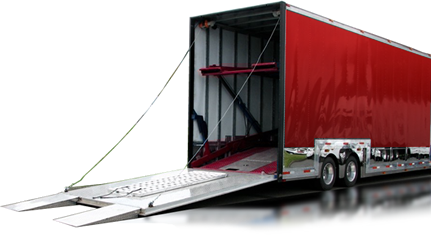Understanding Car Alarms And Their Functions
Car alarms are sophisticated security systems designed to protect vehicles from theft and unauthorized access. These systems have evolved significantly over the years, integrating advanced technology to enhance vehicle safety. Understanding how car alarms work can help you make an informed decision about whether or not to disconnect them before shipping your vehicle.
At their core, car alarms are composed of several key components: sensors, a control unit, and an alarm mechanism. The sensors detect unusual activity such as forced entry, movement inside the vehicle, or tampering with the ignition system. Common types of sensors include door sensors, shock sensors, and tilt sensors. When these sensors detect suspicious activity, they send signals to the control unit.
The control unit acts as the brain of the alarm system. It processes signals from the sensors and determines if there is a legitimate threat that warrants activation of the alarm. Depending on its programming and sensitivity settings, it can distinguish between minor disturbances and significant threats.
When a genuine threat is detected, the alarm mechanism is triggered. This usually involves sounding a loud siren or horn to alert nearby individuals and scare off potential thieves. Some advanced systems may also flash lights or send alerts to your smartphone.
Modern car alarms often come with additional features like GPS tracking, remote start capabilities, and integration with mobile apps for real-time monitoring. These features provide an added layer of security but also add complexity to the system.
Understanding these elements is crucial when considering whether to disconnect your car alarm before shipping your vehicle. The process may involve more than just turning off a switch; it could require reprogramming or temporarily disabling specific components without compromising overall security during transit.
Why You Might Consider Disconnecting Your Car Alarm Before Shipping
When preparing your car for shipping, one crucial aspect to consider is whether you should disconnect the car alarm. This decision can significantly impact both the safety of your vehicle and the efficiency of the shipping process.
Car alarms are designed to protect your vehicle from theft and vandalism by emitting loud noises when triggered. While this feature is highly beneficial during regular use, it can become a nuisance during transportation. The constant movement and vibrations experienced during shipping can inadvertently set off sensitive alarms, causing unnecessary disturbances. In some cases, repeated false alarms can drain your car battery, leaving it without power upon arrival at its destination.
Additionally, most vehicle transport companies have specific guidelines regarding car alarms. Many carriers prefer or even require that alarms be disabled to avoid complications during transit. If an alarm goes off repeatedly while in transit, it may cause delays as drivers or handlers attempt to silence it. This not only disrupts their schedule but also increases the risk of mishandling or damage as they try to access the alarm system.
Moreover, a continuously blaring alarm isn’t just an inconvenience; it can lead to misunderstandings and complications with authorities or port officials if international shipping is involved. The incessant noise might be mistaken for an actual theft attempt, prompting unnecessary inspections and potential fines.
By disconnecting your car alarm before shipping, you ensure a smoother transportation process with fewer interruptions and risks. It helps in maintaining battery life and compliance with carrier requirements while minimizing stress for all parties involved in transporting your vehicle safely to its new location.
Potential Risks Of Not Disconnecting Your Car Alarm
When shipping your vehicle, one crucial consideration is whether to disconnect the car alarm. Failing to do so can lead to several potential risks that could complicate the shipping process and result in unnecessary headaches.
One of the primary risks is accidental activation. Car alarms are designed to be sensitive, triggering at even the slightest disturbances. During transportation, your vehicle will inevitably experience movements and vibrations. These can easily set off the alarm, causing it to go off repeatedly. This not only creates a nuisance but also drains the car battery, which can leave your vehicle powerless upon arrival.
Another significant risk involves communication issues with the shipping company. If your car alarm goes off during transit, it may cause confusion or even panic among the transport staff. They might assume there’s an actual security threat or tampering attempt, leading them to halt operations temporarily until they ascertain what’s happening. Such interruptions can delay delivery times and add stress for both you and the shipping personnel.
Moreover, continuous alarm activation during transport might damage sensitive components within your vehicle’s electrical system. Modern car alarms are integrated with various electronics; repetitive triggers could potentially cause malfunctions or short circuits in other systems within your car.
Finally, consider that a persistently blaring alarm could contravene noise regulations depending on where it’s being shipped through or delivered to. This could result in fines or penalties that you would be responsible for paying.
In summary, while a car alarm is essential for safeguarding against theft under normal circumstances, leaving it active during transportation exposes you to multiple risks including battery drain, delays due to miscommunication with shippers, potential electrical damage, and regulatory issues related to noise pollution. Disconnecting it beforehand ensures smoother transit and peace of mind.
How To Safely Disconnect Your Car Alarm
When preparing to ship your car, one important consideration is whether to disconnect the car alarm. This step can prevent unnecessary complications during transport. To safely disconnect your car alarm, you should start by consulting your vehicle’s manual. The manual often provides specific instructions tailored to your car model and can guide you on how to disable the alarm without causing any damage or triggering the system unintentionally.
Begin by locating the alarm system’s fuse in the fuse box, usually found under the dashboard or in the engine compartment. Identifying this fuse correctly is crucial as pulling out the wrong one might impact other essential functions of your vehicle. Once located, carefully remove it using a fuse puller or a pair of needle-nose pliers. This action typically disables most aftermarket alarms.
For factory-installed alarms integrated deeply into the vehicle’s electronics, disabling might be more complex. In such cases, it might require disarming through a sequence involving your key fob or a specific set of actions like turning the ignition key in a particular pattern while pressing certain buttons.
Another method includes disconnecting the battery terminal briefly and then reconnecting it after ensuring that all systems are reset properly. However, this approach requires caution since modern vehicles have multiple electronic systems that could be affected by sudden power loss.
If you’re uncertain at any point during this process, seeking professional help from an automotive electrician can ensure that everything is done correctly and safely without risking damage to your vehicle’s electrical systems or voiding any warranties.
Taking these precautions ensures that shipping goes smoothly without unexpected disruptions from an active car alarm system.
Alternatives To Disconnecting Your Car Alarm During Shipping
When preparing to ship your vehicle, you might be concerned about whether it’s necessary to disconnect the car alarm. Disconnecting the alarm can sometimes seem like a cumbersome task, especially if you’re not well-versed in automotive electronics. Fortunately, there are several viable alternatives that allow you to ensure a smooth shipping process without needing to go through the hassle of disarming your alarm system.
One practical alternative is to consult with your shipping company. Many vehicle transport companies have specific protocols and experience in dealing with vehicles equipped with alarm systems. They may offer solutions such as placing your car in a specific position on the transport trailer where it is less likely to be jostled or disturbed. Additionally, some companies provide an option for their staff to temporarily disable and then re-enable the alarm upon delivery.
Another option is utilizing valet mode if your car’s alarm system offers this feature. Valet mode is designed for situations where you need someone else to handle your vehicle but want to limit their access and control over certain functions, including the security system. Activating valet mode typically disables sensors that could trigger false alarms during transport while still maintaining basic security features.
Furthermore, consider using a GPS tracking system as an added layer of security. These devices can provide real-time updates on your vehicle’s location without relying on an active car alarm. This ensures peace of mind during transit while avoiding unnecessary complications associated with false alarms.
Lastly, communicating clearly with both the shipping company and any other parties involved will help mitigate any issues related to your car’s alarm system during transport. By exploring these alternatives, you can facilitate a smoother and more secure shipping experience without necessarily having to disconnect your car’s alarm.
Consulting With The Shipping Company: What To Ask
When preparing to ship your vehicle, one critical step is consulting with the shipping company about whether you need to disconnect the car alarm. This conversation is essential because different shipping companies may have varying requirements and protocols regarding vehicle alarms.
First, inquire about the company’s specific policies on car alarms. Some companies might insist on disconnection to prevent any accidental triggering during transit, which can be not only a nuisance but also potentially hazardous if it causes unnecessary attention or battery drainage. Other companies might have no such requirement but could offer recommendations based on their experience.
Ask whether they provide any services or support for disconnecting and reconnecting the alarm system. Some shippers might have technicians who can assist with this process, ensuring that your alarm system remains intact and functional once the vehicle reaches its destination.
It’s also crucial to discuss what happens if an alarm goes off during transit. Understanding their procedures in such scenarios can help you decide whether to deactivate it yourself beforehand. For example, will they access your car to turn off the alarm manually? If so, how will they secure your keys?
Additionally, inquire about insurance implications related to leaving an alarm active versus disconnecting it. Some insurance policies may have clauses that are affected by this decision.
Lastly, don’t forget to ask for tips on how best to secure your vehicle if you decide or are required to disconnect the alarm. The shipping company might suggest alternative security measures that can keep your car safe without relying solely on its built-in alarm system.
By covering these points in your discussion with the shipping company, you ensure a smoother and more secure transport process for your vehicle.
Reconnecting And Testing Your Car Alarm After Shipping
Reconnecting and testing your car alarm after shipping is a crucial step to ensure the security of your vehicle. Once your car has arrived at its destination, you’ll want to re-establish all the safety measures you had in place before it was shipped. Start by carefully examining the car’s exterior and interior for any potential damage or tampering that might have occurred during transit.
This initial inspection helps identify any issues that need addressing before you proceed with reconnecting the alarm system.
Next, locate the main control unit of your car alarm, usually found under the dashboard or in the engine compartment. Reconnect any wires or components that were disconnected prior to shipping. Make sure all connections are secure and free from corrosion or damage, as this can affect the performance of your alarm system.
After reassembling everything, it’s time to test the functionality of your car alarm. Begin by locking and unlocking the doors using both manual keys and remote controls if available. Check if the alarm arms and disarms correctly during these actions. Triggering various sensors like opening doors, windows, or even slightly jostling the vehicle can help ensure each component is working effectively.
If you encounter any issues during this process—such as false alarms, failure to arm, or sensors not responding—it may be necessary to consult with a professional technician who specializes in car alarms. They can diagnose and fix problems that may be beyond basic troubleshooting.
Lastly, always refer to your vehicle’s manual for specific instructions related to your make and model when dealing with electronic systems like alarms. Properly reconnecting and testing your car alarm ensures peace of mind knowing that your vehicle remains protected against theft even after a long journey.



